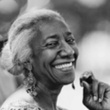The cooking gene: a journey through African-American culinary history in the Old South
Description
2018 James Beard Foundation Book of the Year | 2018 James Beard Foundation Book Award Winner inWriting | Nominee for the 2018 Hurston/Wright Legacy Award in Nonfiction | #75 on The Root100 2018
A renowned culinary historian offers a fresh perspective on our most divisive cultural issue, race, in this illuminating memoir of Southern cuisine and food culture that traces his ancestry—both black and white—through food, from Africa to America and slavery to freedom.
Southern food is integral to the American culinary tradition, yet the question of who "owns" it is one of the most provocative touch points in our ongoing struggles over race. In this unique memoir, culinary historian Michael W. Twitty takes readers to the white-hot center of this fight, tracing the roots of his own family and the charged politics surrounding the origins of soul food, barbecue, and all Southern cuisine.
From the tobacco and rice farms of colonial times to plantation kitchens and backbreaking cotton fields, Twitty tells his family story through the foods that enabled his ancestors’ survival across three centuries. He sifts through stories, recipes, genetic tests, and historical documents, and travels from Civil War battlefields in Virginia to synagogues in Alabama to Black-owned organic farms in Georgia.
As he takes us through his ancestral culinary history, Twitty suggests that healing may come from embracing the discomfort of the Southern past. Along the way, he reveals a truth that is more than skin deep—the power that food has to bring the kin of the enslaved and their former slaveholders to the table, where they can discover the real America together.
Illustrations by Stephen Crotts
More Details
9780062379290
9780062379283
9781541498075
Table of Contents
From the Book - First edition.
Similar Titles From NoveList
Similar Authors From NoveList
Published Reviews
Booklist Review
*Starred Review* Referring to the Old South as a forgotten Little Africa, culinary historian Twitty explores southern cuisine through the lens of the nation's troubled racial past, which has created an amalgam of races and cultures, a blend often denied. Through a crowd-funded campaign, the Southern Discomfort Tour, Twitty traveled from Civil War battlefields to southern plantations to black-owned organic farms, reviving old recipes and using old cooking methods to get a taste and feel for the food that sustained his ancestors. Along the way, he uncovers his own family history and rediscovers for himself a connection he felt he was losing. Twitty puts his revelations in the broader context of the heritage of black cooking, noting contributions by unsung great black American cooks, including James Hemings, enslaved by Thomas Jefferson. Hemings learned French cuisine while in Paris with Jefferson but added his own heritage to create a blend for Monticello that was credited to his master. In this amazing memoir of food culture, Twitty draws the connection between Hemings and many other historic individuals and contemporary notions of southern cuisine that have ignored a neglected and often-bitter past. This is a joyous journey of discovery by a man with obvious love for history and the culinary arts.--Bush, Vanessa Copyright 2017 Booklist
Publisher's Weekly Review
In this tasty but overstuffed food odyssey, Afroculinaria historian Twitty recounts his "Southern Discomfort Tour" that he documented on his blog The Cooking Gene: revisiting the varied cuisines of the antebellum Tidewater, Low Country, and Cotton Belt South, talking to chefs and farmers, giving historical cooking demonstrations, and piecing together biographical and gastronomic lore on his enslaved (and enslaving) ancestors. On the peg of the tour he hangs a surfeit of information, from history and agronomy to genealogical research, recipes, and boyhood reminiscences of his grandmother's Sunday soul food feasts. Yet that information is not always well-digested: the author's DNA testing results prompt lengthy disquisitions on the ethnogeography of West Africa, and some cultural-studies verbiage-"our food world is a charged scene of culinary inquiry"-could use trimming. For food lovers, his descriptions are rich: "the collard greens spiked with hot pepper, sugar and fatback, fried chicken, Virginia country ham. sweet cornbread, biscuits, string beans that swim in potlikker." Throughout, Twitty integrates historical details into the narrative, as in accounts of the backbreaking slave labor of tobacco and rice farming or the emotional anguish of slave auctions-and the results are fascinating. (Aug.) © Copyright PWxyz, LLC. All rights reserved.
Kirkus Book Review
Food historian Twitty, creator of the Afroculinaria blog, serves up a splendid hearth-based history, at once personal and universal, of the African-American experience.The author accounts himself a citizen of the Old South, "a place where people use food to tell themselves who they are." It is also, he continues, a fraught place where food controversieswhether to put sugar and not molasses in cornbread, saypile atop controversies of history, all pointing to the terrible fact of slavery. Twitty's book is not just about food, though it certainly covers the broad expanse of African-American cooking over the centuries and how it shaped the larger Southern American culinary tradition. The author delights in the "world of edible antiques" that his researches take him into, a world requiring him to think in terms of gills, drams, and pecks. Twitty also traces his own family history, beyond the eight or so generations that carry documents, to places all over the world: a white ancestor here, an Indonesian by way of Madagascar forebear there, Native Americans and West Africans and Anglos meeting in bloodstreams and at table. On all these matters, the author writes with elegant urgency, moving swiftly from topic to topic: on one page, he may write of the tobacco economy of the Confederacy, on another of the ways in which "the food of the Chesapeake grew legs as the culture of the Upper South was forced to branch out" beyond the Appalachians and Mississippi into new territories, such that "turkey with oyster dressing on a Maryland plantation became turkey with freshwater clam and mussel sauce on a slaveholding Missouri farmstead." Drawing on a wealth of documentary digging, personal interviews, and plenty of time in the kitchen, Twitty ably joins past and present, puzzling out culinary mysteries along the waye.g., "chickens got served to preachers because chickens had always flounced in the hands of African priests, and nobody remembered why." An exemplary, inviting exploration and an inspiration for cooks and genealogists alike. Copyright Kirkus Reviews, used with permission.
Booklist Reviews
*Starred Review* Referring to the Old South as a forgotten Little Africa, culinary historian Twitty explores southern cuisine through the lens of the nation's troubled racial past, which has created an amalgam of races and cultures, a blend often denied. Through a crowd-funded campaign, the "Southern Discomfort Tour," Twitty traveled from Civil War battlefields to southern plantations to black-owned organic farms, reviving old recipes and using old cooking methods to get a taste and feel for the food that sustained his ancestors. Along the way, he uncovers his own family history and rediscovers for himself a connection he felt he was losing. Twitty puts his revelations in the broader context of the heritage of black cooking, noting contributions by unsung great black American cooks, including James Hemings, enslaved by Thomas Jefferson. Hemings learned French cuisine while in Paris with Jefferson but added his own heritage to create a blend for Monticello that was credited to his master. In this amazing memoir of food culture, Twitty draws the connection between Hemings and many other historic individuals and contemporary notions of southern cuisine that have ignored a neglected and often-bitter past. This is a joyous journey of discovery by a man with obvious love for history and the culinary arts. Copyright 2017 Booklist Reviews.
Library Journal Reviews
Culinary historian and blogger Twitty (afroculinaria.com) recounts his personal mission to document the links between his forebearers' foodways and family history from Africa to America, from slavery to freedom. His effort is part food memoir, part ancestral findings, and a paean to the culinary successes of his ancestors. Twitty visited cultural locations pertinent to his story, lectured on his findings, and engaged in genealogical research to comprehend his roots and food heritage. The author details his childhood aversion to soul food, introduction to cooking, devotion to family, conversion to Judaism and mastery of its dishes, while providing genealogical insights along the way. During his visits to plantations throughout the South, Twitty made fascinating discoveries, such as that farmers markets and community gardens served bondsmen well, and that their personal gardens acted to moderate slavery itself; that the slave's diet was perhaps healthier than the master's table; and that field labor tended to preserve the manhood and brotherhood of many of the enslaved. Conversely, Twitty's search for his ancestors in slave auction advertisements reveals the human costs and indignities associated with these sales. VERDICT A valuable addition to culinary and Old South historiography with lip-smacking period recipes. Recommended for regional historians, professional chefs, cuisine enthusiasts, and general readers.—John Carver Edwards, formerly with Univ. of Georgia Libs.
Copyright 2017 Library Journal.PW Annex Reviews
In this tasty but overstuffed food odyssey, Afroculinaria historian Twitty recounts his "Southern Discomfort Tour" that he documented on his blog The Cooking Gene: revisiting the varied cuisines of the antebellum Tidewater, Low Country, and Cotton Belt South, talking to chefs and farmers, giving historical cooking demonstrations, and piecing together biographical and gastronomic lore on his enslaved (and enslaving) ancestors. On the peg of the tour he hangs a surfeit of information, from history and agronomy to genealogical research, recipes, and boyhood reminiscences of his grandmother's Sunday soul food feasts. Yet that information is not always well-digested: the author's DNA testing results prompt lengthy disquisitions on the ethnogeography of West Africa, and some cultural-studies verbiage—"our food world is a charged scene of culinary inquiry"—could use trimming. For food lovers, his descriptions are rich: "the collard greens spiked with hot pepper, sugar and fatback, fried chicken, Virginia country ham… sweet cornbread, biscuits, string beans that swim in potlikker." Throughout, Twitty integrates historical details into the narrative, as in accounts of the backbreaking slave labor of tobacco and rice farming or the emotional anguish of slave auctions—and the results are fascinating. (Aug.)
Copyright 2017 Publisher Weekly Annex.































